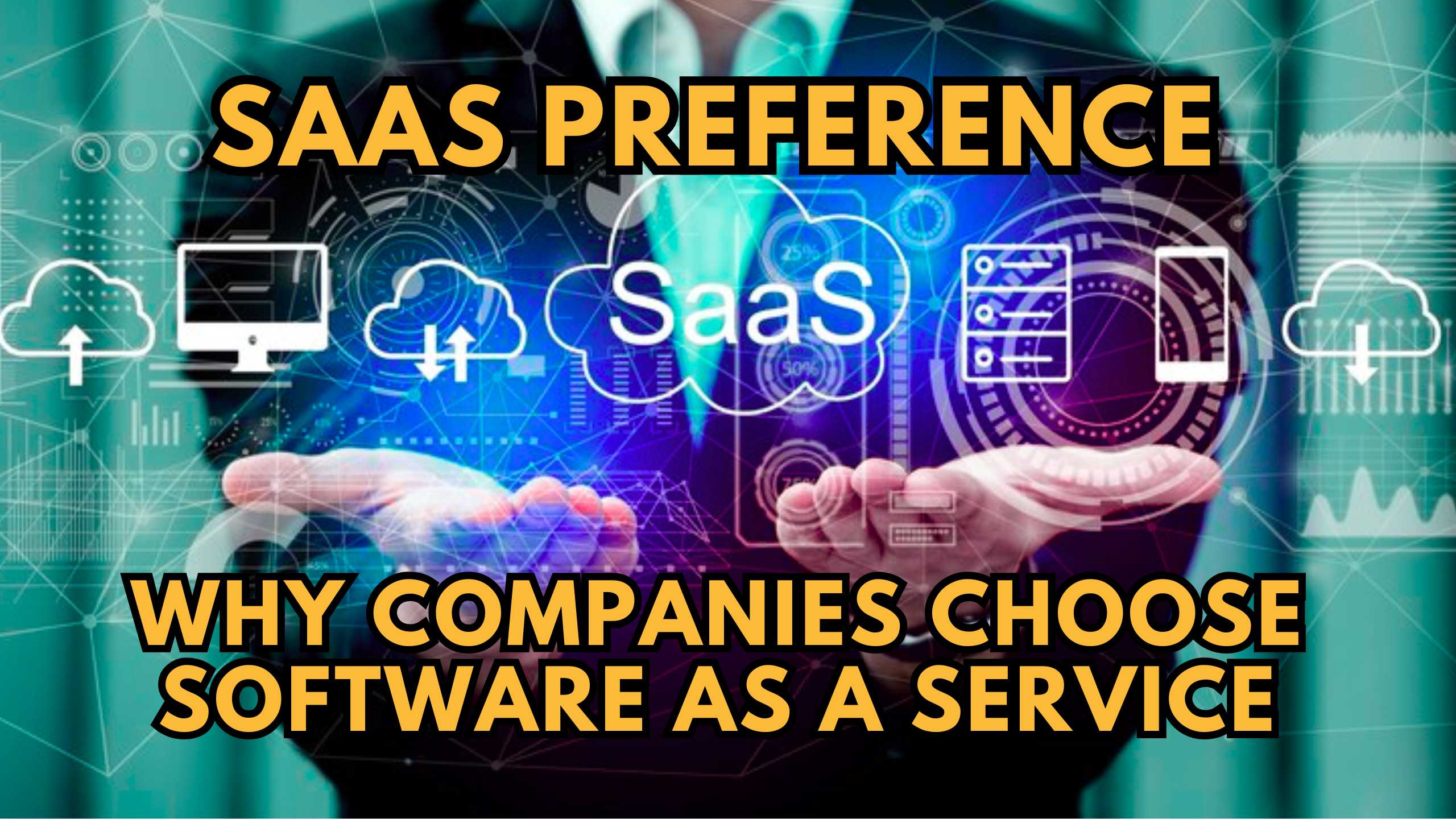SaaS Preference: Why Companies Choose Software as a Service
- Expense Management Software Credit Cards Investing Business Solutions


SaaS Preference: Why Companies Choose Software as a Service
In the ever-evolving realm of technology, Software as a Service (SaaS) has become the preferred model for countless companies. This blog delves into the reasons behind the widespread adoption of SaaS and explores the key factors that make it a top choice for businesses.
Understanding the SaaS Advantage
SaaS offers a plethora of advantages that resonate with the diverse needs of modern businesses. The convenience, scalability, and cost-effectiveness of SaaS solutions have propelled its popularity, making it the go-to choice for companies across industries.
1. Cost-Efficiency and Predictable Expenses
One of the primary reasons companies gravitate towards SaaS is its cost-efficiency. With a subscription-based model, businesses can avoid hefty upfront costs associated with traditional software purchases. Predictable monthly expenses allow for better budgeting and financial planning.
Consider a startup with a limited budget. By opting for a SaaS-based project management tool like Asana, the company can avoid the hefty upfront costs associated with traditional project management software. This allows the startup to allocate resources more efficiently during the initial stages.
2. Scalability for Growing Businesses
SaaS solutions are inherently scalable, making them ideal for businesses with varying needs and sizes. As companies expand, SaaS platforms can seamlessly adapt to increased workloads, ensuring that the software remains a valuable asset throughout the growth trajectory.
A fast-growing e-commerce business experiences a sudden surge in online orders during the holiday season. With a scalable e-commerce platform like Shopify, the company can effortlessly handle increased web traffic and transactions without the need for significant infrastructure investments.
3. Accessibility and Flexibility
The cloud-based nature of SaaS ensures that users can access software applications from anywhere with an internet connection. This level of accessibility enhances collaboration among remote teams, fostering flexibility in work arrangements and contributing to increased productivity.
A multinational corporation with remote teams across the globe needs seamless collaboration. By using communication tools like Slack, employees can easily communicate in real-time, irrespective of their geographical locations. This accessibility fosters flexible work arrangements and enhances productivity.
4. Automatic Updates and Maintenance
SaaS providers handle software updates and maintenance, relieving businesses of the burden of manual installations and patches. This not only ensures that the software is consistently up-to-date with the latest features but also reduces the strain on internal IT teams.
Imagine a mid-sized marketing agency focusing on client campaigns. By utilizing cloud-based marketing automation software like HubSpot, the agency can ensure that its marketing tools are consistently updated. This allows the marketing team to leverage the latest features without interrupting ongoing campaigns.
5. Focus on Core Competencies
By outsourcing software management to SaaS providers, companies can concentrate on their core competencies without the distraction of maintaining complex IT infrastructures. This allows for greater focus on business objectives and innovation.
An innovative tech startup aims to disrupt the market with its unique product. By leveraging cloud storage solutions like Amazon S3, the startup can focus on developing and improving its core product. This eliminates the need for extensive in-house IT infrastructure management, allowing the team to prioritize innovation.
Relevant SaaS Products Revolutionizing Business Efficiency
- Slack revolutionizes team communication with its intuitive and collaborative platform. Its real-time messaging and file-sharing capabilities enhance productivity, making it a vital tool for companies looking to streamline communication.
- Zoom has emerged as a leading video conferencing solution, facilitating seamless virtual meetings and collaboration. Its user-friendly interface and reliability have made it a preferred choice, especially in the era of remote work.
- Asana is a project management tool designed to improve team collaboration and task management. Its intuitive interface and robust features make it an essential asset for companies striving for efficient project execution.
- Salesforce is a comprehensive CRM platform that empowers businesses to manage customer relationships effectively. Its cloud-based approach and extensive customization options cater to the diverse needs of companies across industries.
- Dropbox simplifies file storage and collaboration, allowing teams to share and access documents seamlessly. Its cloud-based architecture enhances data security and accessibility, making it a valuable asset for businesses of all sizes.
Conclusion: Empower Your Business with SaaS Excellence
In conclusion, the preference for SaaS among companies is rooted in its ability to provide cost-effective, scalable, and accessible solutions that align with the dynamic nature of modern business environments. To navigate the SaaS landscape efficiently and discover exclusive deals, explore Subscribed.fyi. Sign up today to unlock savings, streamline subscription management, and gain insights that elevate your SaaS strategy.
Relevant Links:








